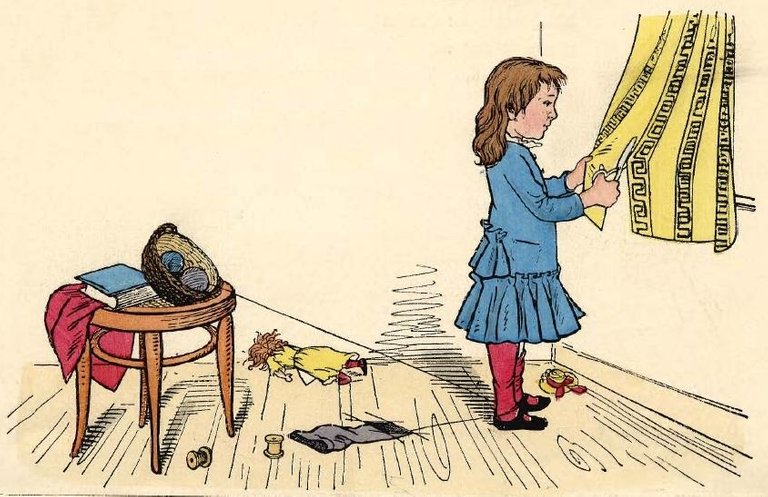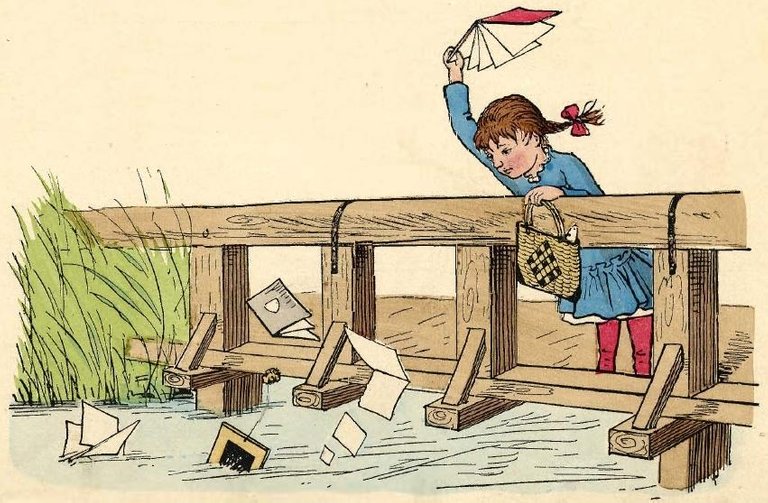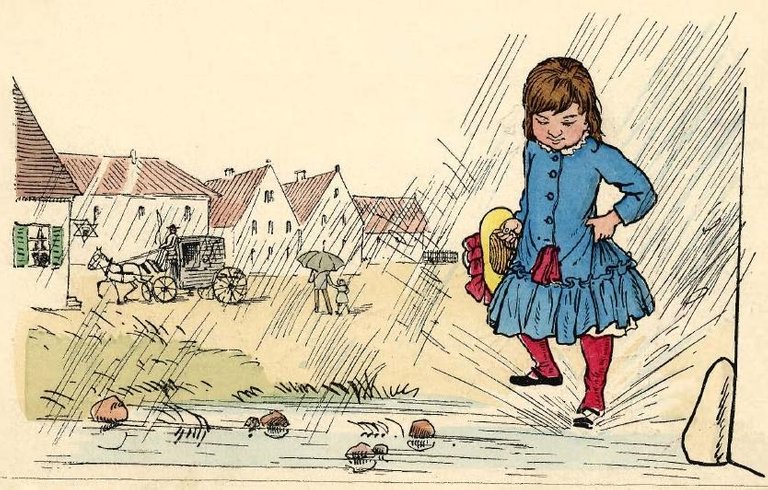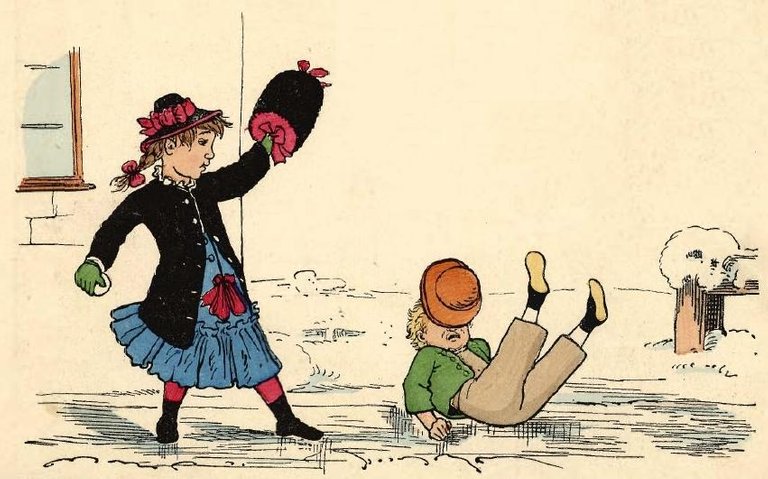This is a part of a series of posts I'm doing on (our experience with) the Norwegian Child Protection Service, "Barnevernet" - though, this post is not going to be so much about Barnevernet in itself. It took almost eight years from we got our first son until Barnevernet got their first "letter of concern" on us. This post is mostly about our experiences from those eight years.

(The illustration images are some random images I found on the topic of "challenging children", they may not be directly relevant to our problems, but the kind of misbehaviour illustrated is for sure challenging. Such misbehaviour can sometimes be caused by a lack of parenting skills, but it can also be a part of the personality of the child. Things that may seem easy for parents with well-behaving "normal" children - like, sending the child to school in the morning - may require a lot of energy for parents having challenging children. The reason for the challenges may also be totally out of the control of the parent, for instance that the child gets bullied at school and hence don't want to go there at all).
Everybody may need some help
There is a saying that "it needs a village to raise a child". Unfortunately, that's not quite how it works in modern societies nowadays. The child has fixed hours it's supposed to be in the kinder garden or school, and then fixed hours with the parents - who may or may not get help from an extended family and/or a social network. We don't have much of a network, particularly not after our move to Oslo. In the Scandinavian countries, if the child has any special needs, the state is supposed to give some kind of aid. Sometimes one may be lucky. I've even heard of Barnevernet sending workers home to parents to help cleaning the house.
Having children is a big responsibility, and nobody are perfect parents - I'm quite sure all parents could need some education and some coaching from time to time. For some families things are generally working out smoothly, while other children may face various challenges. Those challenges can be anything from the child being born as a "night owl" in a society catering for "early birds", fysical handicaps, mental issues, conflicts with a teacher, experiences of being bullied in school - et cetera. There can be negative feedback loops, as a child with challenges typically may become "difficult", "difficult" children causes more strain on the parents, may cause a detoriating parent-child relationship, and may also result in conflicts with the kinder gardens, schools, and ultimately Barnevernet.
We have experienced serious problems in the schools and kindergarden, and a lack of competence on handling the challenges - even to recognize that there are problems (see also my previous post on this). Sometimes there are no other solutions than to change school or kinder garden, which may be non-trivial. We have been through that process three times, two times successfully.

Getting help from the state
I think it would have been great if there was one instance out there where concerned parents could ask for any kind of help, an instance who could take responsibility and coordinate all kinds of such needs a child may have, regardless of weather the root problem is at school or at home. The nearest instance like that is Barnevernet. Unfortunately, Barnevernet doesn't really work that way. As I wrote in my first post in this series, parents wouldn't volunteerly ask for help from this organization as they are scared of this organization - so parents considering that their child may need a bit of extra help find themselves doing a lot of legwork visiting different institutions and doing research on how to get help. Barnevernet also has most of it's focus on the situation at home and with the parents.

We found that we needed help - but didn't get any
We have had some challenges, particularly with two children that didn't speak in the kinder garden (ref my previous post). The first case was not reported to Barnevernet. (In the second case the kinder garden seems to have reported it to Barnevernet instead of recognizing that the problem may have been in the kindergarden). He stopped speaking in the kinder garden, and we recognized it as a big problem - the kinder garden employees didn't seem to care much. Eventually he stopped speaking with strangers at all, he even stopped speaking with the grandmother ("selective mutism").
All that was needed to solve the problem was that someone with the right social skills and ability to "connect" with him would read a bit up on the problem, go into the kinder garden and help him there. I know at least two persons that most likely would have been able to do the job. One of them managed to get him to speak after maybe ten minutes while we were visiting her in her office - it was such a surprise! Unfortunately, her job was not to help him, her job was to put a diagnose on him - and since she managed to get him to speak, "mutism" was out of the question and hence our possibilities to get help for his problems was seriously reduced.
The second lady was supposed to work with the kinder gardens, but her role was just to observe him and give advices to the kinder garden. We had numerous meetings with the kinder garden and this lady, and it was a huge frustration - we spent hours and hours, and the theme repeated itself over and over again: the boss of the kinder garden was begging for financial help from the municipalities to hire an extra person to deal with our son as well as her other "problems", and the lady repeatedly said that it was out of the question. Eventually the kinder garden got an extra assistent, but he was not able to help our son in any way. After maybe a year we got help - by pure coincident. A student lady came in for practice in the kinder garden, she wished to write a master thesis on our child. She managed to get him to speak in the kinder garden. Unfortunately we never got a copy of her master thesis.
During those years we were also supposed to receive some "parental training", but for various reasons we didn't get this.

Capacity problems and waiting time
There was a long waiting time for anything to happen (this did improve after we had moved to Oslo though). Time passes fast when being a child, and problems can grow worse due to negative feedback loops. Probably we would have been a "normal" family without any problems with Barnevernet if we would have gotten the help we needed when we needed help.
Not related to the problem above, but we had this need for a surgery for one of our children. In Norway, we first had to order an appointment with a GP, wait until he has time to receive us, shake hands and get a referral to the hospital. We waited for quite long before we got an appointment with the hospital. The day came - our appointment was before noon (we had not been eating lunch and we got hungry while waiting - after a while I was begging in the reception if we could leave the waiting room and go eat lunch). Eventually, at 17:30, we got to see a doctor, he had a quick look at the problem and told us that the child needed surgery (surprise, surprise, we already knew that) and that he would give him a position in the queue for surgery. This was in the beginning of the year, maybe late January. On summer vaccation in Russia with the grand parents they were shocked that he hadn't been to surgery yet, took him to the hospital and got two options - pay a fee for getting the surgery done the same day, or wait a week to get it done for free. That's fair. We moved from the arctic north of Norway to the capital Oslo, and in the late autumn - probably October - I got a phone call from the hospital: "we have observed that you have changed address - perhaps we can move your son from our queue to a queue for a hospital in Oslo?". Duh ...

Summing it up
Norway has a very large welfare budget, the basic idea is that there should be a security net and that the state should take care of people that have health problems or problems integrating into the society - for whatever reason. Children should in particular have equal rights to education and health services regardless of the social and economical situation of their parents.
In practice it often doesn't work out that well. It may be difficult to get help in Norway, even it's clear that a child needs help. First of all there are limited resources, sometimes one may have to wait for months or even years before someone has time to look into the case. Even then there will be more delays - resources that could have been used on actually helping the children are clogged up with administrative tasks, meetings, investigations, observations and documentation. The result is that the real help may be severely delayed.

(And finally, the "help" offered may not at all be appropriate - like taking the child that talks with nobody but her parents and one friend at school out of the family, place it at some foster parents in another district and hope that she will start speaking).

Sources
Only "original content" here, everything is based on my own experiences, no external sources involved.
Image credits
- A misbehaving child playing with paint - Miami U. Libraries - Digital Collections, Public domain, via Wikimedia Commons
- The "böse Lina"-series - Lothar Meggendorfer, Public domain, via Wikimedia Commons
That is disgraceful. It is science in the ivory tower. Unfortunately, another example of costs not borne by those who claim the advantages.
See my other comment at https://ecency.com/familyprotection/@anli/re-tobixen-2021529t131432374z
I'm still digging. Expect more comments from me. I take some time now to live with my family ... @tipu curate !invest_vote !ENGAGE 5
Upvoted 👌 (Mana: 0/22) Liquid rewards.
ENGAGEtokens.